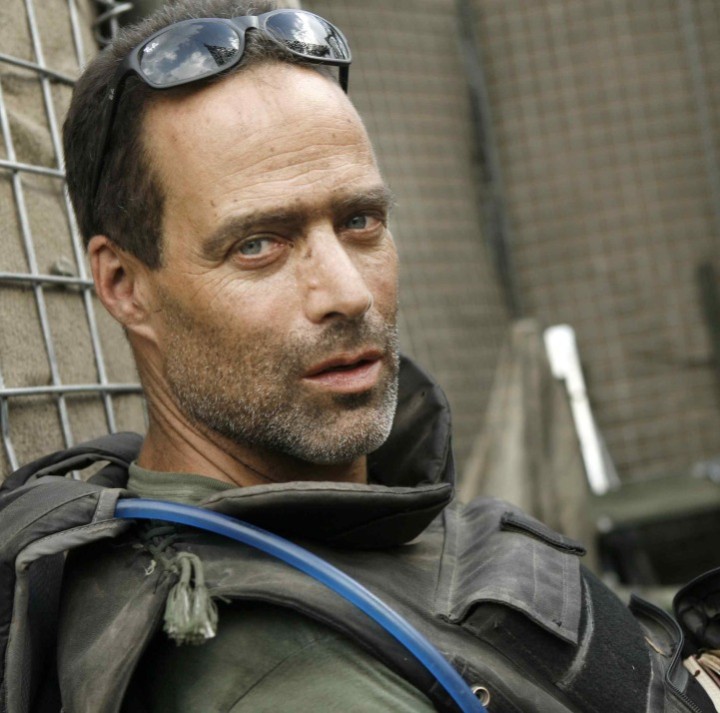In this episode of The Archive Project, Sebastian Junger begins his lecture by stating that he had no idea he was going to be a war reporter. Starting out as an anthropology major, Junger spent several years as a tree-climber until he cut open his leg with a chainsaw and began questioning his path in life. “There was a war in Bosnia,” he says, “and I just went.”
Junger talks about his work reporting on combat in Afghanistan just before and during the U.S. invasion and how this intense experience informed both his writing and his life. He notes his own strange fascination with war, which fuels his reporting, explaining it as a desire to understand why humans think war is both horrifying and entertaining. Specifically, Junger shares anecdotes about his experience with a unit in the Korengal Valley of Afghanistan, famous for being the most combat-heavy area in the Afghan War, giving vivid description of combat and every man’s brushes with death, including his own. Throughout the evening, Junger delves into the complex nature of war, the brotherhood that develops amongst soldiers, and society’s responsibilities to these soldiers.
“I realized war is a lot of things. It’s horrifying, but it’s also very exciting, you know. It’s profound, and it’s also very meaningless. It’s a lot of things. And I realized that if I wanted to be a war reporter, I couldn’t step outside the tent for the unpleasant stuff.”
“There are two things that we all have complete control over, that can’t be taken away from us, and that you’re not born with: courage and compassion.”
Sebastian Junger is the internationally acclaimed bestselling author of A Death in Belmont, Fire, and The Perfect Storm, which stayed on the New York Times’ bestseller list for more than three years, set sales records, and became a major motion picture from Warner Bros.
nAs a contributing editor to Vanity Fair and a contributor to ABC News, he has covered major international news stories in Liberia, Sierra Leone, and other locations around the globe. He has reported on the LURD besiegement of Monrovia in Liberia, human rights abuses in Sierra Leone, war crimes in Kosovo, the peacekeeping mission in Cyprus, wildfire in the American West, guerilla war in Afghanistan, and hostage-taking in Kashmir, in addition to working as a freelance radio correspondent during the war in Bosnia.
For over a year, Junger and photojournalist Tim Hetherington embedded with the battle company of the 173rd Airborne Brigade Combat Team in the remote and heavily contested Korengal valley of eastern Afghanistan. Reporting on the war from the soldiers’ perspective, Junger spent weeks at a time at a remote outpost that saw more combat than almost anywhere else in the entire country. The professional result is twofold: the book WAR and a documentary, Restrepo, that won the 2010 Grand Jury Prize at the Sundance Film Festival.
Junger has been awarded the National Magazine Award and an SAIS Novartis Prize for Journalism, among other accolades. He currently lives in New York City and on Cape Cod.
“That is what makes war so complicated. You can’t package it in a neat liberal or conservative package and dispense with it. War insists on being puzzled over and engaged with. It’s incredibly elusive. It’s like love, like one of these things that’s eternal and ancient and completely elusive, and you’ll never fully understand it.”



